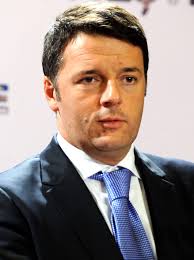Renzi Proposes Funding Cuts for EU States Shirking Refugee Responsibilities
Italian Prime Minister Matteo Renzi requested on October 12 that the European Union (EU) cut funding for member states that have refused to abide by their assigned quotas to accept incoming refugees. Renzi’s suggestion is particularly timely given that the EU meets on October 19 in Brussels to discuss long-term budget planning.

Renzi specifically criticized Eastern European countries such as Hungary, Poland, the Czech Republic, and Slovakia, which have recently refused to take in their allotment of refugees. These countries have turned away Muslims in particular, claiming that they would threaten their national identities and disrupt social stability. Renzi noted that these Eastern European countries have been receiving significant funding from the EU to relaunch their economies after the fall of communism and since earning EU membership 15 years ago. Criticizing the countries that relinquished their responsibilities, Renzi said, “The positive aspects of belonging to the EU must be balanced by the duties that come with membership.”
The refugee crisis is a particularly sensitive issue in Italy, since it became the main hub for refugees immigrating from North Africa. Currently, Italy is holding 160,000 asylum seekers out of 460,000 refugees who arrived at Italian ports since 2014. After the Balkan countries closed their borders to refugees in the spring, the EU made a deal with Turkey in March to decrease the number of incoming refugees en route through the Aegean Sea. This decision made Italy a prime destination for refugees. According to the EU quota plan, around 40,000 of Italy’s refugees were supposed to be relocated to other EU member states, but, due to the refusal of Eastern European nations, only 1,300 were moved. Italy’s past initiatives to welcome these refugees imposed a large financial burden on the country; according Minister of Economy and Finance Pier Carlo Padoan, Italy is setting a $27 million budget to accommodate the needs of the refugees. The Italian government is considering increasing its budget deficit to 2.4 percent, above the maximum EU-allowed deficit of 1.8 percent, to meet the changing circumstances in the refugee crisis. Renzi is expected to face a referendum in 2017 about his proposed constitutional reforms, so he presumably now wishes to mitigate any social discontent towards the current refugee crisis.
